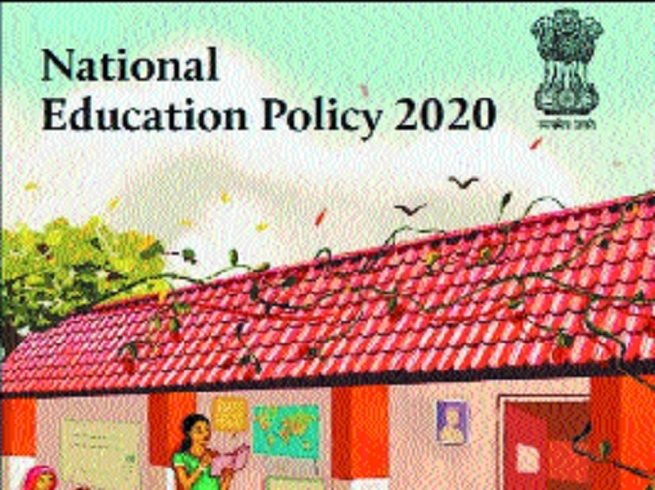Educators across India laud National Education Policy 2020
| Date :01-Aug-2020 |

NEW DELHI,
EDUCATORS across the country have lauded the National Education Policy (NEP) approved by the Union Cabinet for introducing many reformations in the Indian education system after 34 years. Starting with the renaming of HRD Ministry as the Ministry of Education, the new policy approved by Union Cabinet on Wednesday envisions to offer a new structure to the education system in the country. The NEP 2020 proposes the revision and revamping of all aspects of the education structure, including its regulation and governance, to create a new system that is aligned with the aspirational goals of 21st-century education, while remaining consistent with India’s traditions and value systems, the educators said.
“This policy was long due and brings about the transformation to learn and turn the future Indian minds,” Niranjan Hiranandani, Provost, HSNC University Mumbai, said in a statement. “The NEP will offer multiple exit points in studies, which means that one could actually get into employment at different ages, different times, and different levels of education which is a thoughtful strategic structure,” Hiranandani said. Speaking on this integration, Atul Kulshrestha, Chairperson, FICCI Edtech Task Force, and Chairman and MD, Extramarks, said that the New Education Policy strives to completely transform the school education sector by aiming to provide high-quality education to all. Kulshrestha lauded the new policy for aiming to integrate technology, implementing a new assessment methodology and using Artificial Intelligence (AI) to track student performance to optimise their career. Another very important development as a part of the NEP 2020 is the directive to teach students till the 5th grade in the mother tongue of the State or local language whenever possible.
“This is a welcome development. It is important to understand that deep and profound learning happens in the language a child is comfortable with,” said Vinod Malhotra, Chairman, Academic council, Saamarthya Teachers Training Academy of Research, Ghaziabad. “The primary objective of an education policy initiative is to enhance learning. Mother tongue is the most effective instrument of building strong foundations of knowledge,” Malhotra said. Vishnu Karthik, CEO, Xperiential Learning Systems and Director, The Heritage Schools said: “We first have to distinguish between language and literacy. Language is speaking and is natural for our brains. Literacy is reading and writing which is to be learned by our brains.”
‘New Edn Policy envisions imparting 21st century and employability skills’
Bengaluru,
July 31 (PTI)
THE National Education Policy (NEP) 2020 envisions imparting 21st century and employability skills with no compromise on quality, says its draft panel head K Kasturirangan. The idea of a liberal or a multi-disciplinary education at undergraduate(UG) level and also a type of four-year structuring of secondary education provides a lot of opportunities for picking up many types of skills, which can be even used as employment opportunities, he said. “These are all part of developing 21st century skills because education embeds these kinds of things to qualify the youngster with respect to what is needed in the 21st century which is communication, creativity, problem-solving and things of that type,” he said.
Lot of emphasis given to employment aspect in NEP 2020: UGC Secy
NEW DELHI,
July 31 (ANI)
University Grant Commission (UGC) Secretary Professor Rajnish Jain, in a conversation with ANI over NEP 2020 , highlighted the important changes made in the Higher Education sector. “Lot of emphasis has been given to the employability aspect of higher education. As you know, there is already a Bachelor of Vocational Studies. These kinds of courses are already offered under the ‘Bachelor of Vocation’ programme. Considering the importance of employability, vocational training in terms of the internship will be integrated at the undergraduate level in all the other general education courses,” said Jain. He further cited an example to explain, “The undergraduate level right from the first year, second-year vocational courses can be integrated with degree course that will enhance the employment of any graduate students.”
